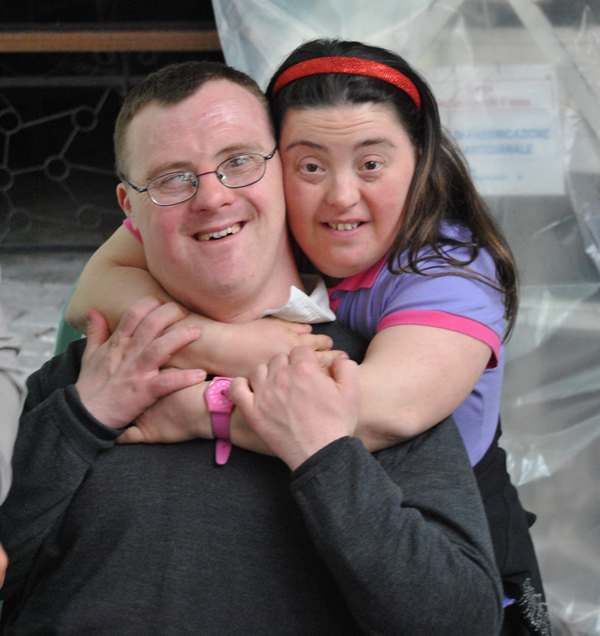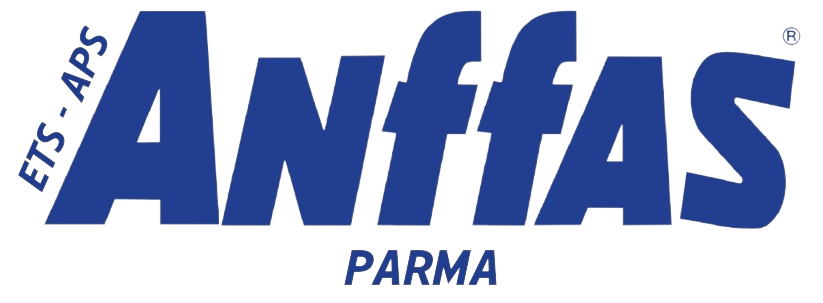Anffas was founded in Rome on 28 March 1958 by a group of parents who had kids with intellectual disabilities. They gathered around a mum: Maria Luisa Ubershag Menogotto. At that time, people with disabilities, especially intellectual ones, and their families lived a tragic situation, surrounded by a climate of pity and ghettoisation, benefitting almost only from fragmentary charity initiatives and essentially being left alone, without support or opportunities. Emarginated from school, work and society, the destiny of many of them was to spend a sad life with little dignity, often segregated in large psychiatric hospitals.
During November 2000 , the Association, which up to that moment has always been an unitary structure, composed by 195 sections distributed on the entire National territory, decided a statutory modification which brings the sections to transform into autonomous local Associations, constituting the new Associative basis of National Anffas and Regional coordinations.
In view of this, Anffas Parma,born in 1966, as a section of National Anffas, provided in January 2002 to transform itself in an Association denominated Anffas of Parma ONLUS with its own legal autonomy but keeping the associative bond with National Anffas, and in January 2023 entering in the Registro Unico Nazionale degli Enti del Terzo Settore (RUNTS) further changed into ANffAS Parma APS – Associazione Locale di Famiglie e Persone con Disabilità Intellettiva e Disturbi del Neurosviluppo
The Associates of Anffas Parma are mainly parents and family members of people with disabilities, but also friends. All of them have in common the awareness of problems linked to social inclusion, maintaining psycho-physical skills and the distressing ‘After Us’ problem
During these 60 years, the work done by Anffas has been constant and insisting, full of law proposals, signature collection, public demonstrations, self-organisation and service management. These labours brought to great accomplishments for acknowledging the rights of people with disabilities and their family members. These acknowledgements would hardly have been obtained, without Anffas families. A lot remains to be done and nowadays, these accomplishments are increasingly questioned.
In the recent story of the Association , there is an important reflection on self-determination and self- representation , which represent a fundamental right of people with disabilities. To make this right due, it is necessary to give the right, adequate support to all people with intellectual disabilities.
In addition to intervene on society (on many levels), today Anffas also workswith people with intellectual disabilities themselves, educating them so to make them aware of their rights and duties, and aware of tools at their disposition so that their rights are respected and defended in all life contexts. In this Anffas is by their side without imposing itself, without substituting them, but simply giving them tools and education which they need.
Today Anffas is the biggest Italian association of families and people with intellectual disabilities and neurodevelopmental disorders with a capillary diffusion on the entire national territory thanks to 165 local associations and 63 autonomous bodies which guarantee the care, assistance and protection of more than 30.000 people with intellectual disabilities.
Nel 2019, ANffAS Parma ha cambiato la sua denominazione da ANffAS Parma Onlus – Associazione Nazionale di Famiglie di Persone con
Disabilità intellettive e/o relazionali a ANffAS Parma OdV – Associazione Nazionale di Famiglie e Persone con Disabilità intellettive e disturbi del neurosviluppo.
Dal 2023, grazie anche all’implementazione della riforma del terzo settore, ANffAS Parma OdV è diventata ANffAS Parma APS-
Associazione Locale di Famiglie e Persone con Disabilità Intellettiva e Disturbi del Neurosviluppo.
- The School world, to promote scholastic integration
- Municipal and Provincial Administration for work placements and services to the person
- With the Local Health Authority in the C.U.F
- Forum Solidarietà (Centre of Services for Volunteering of Parma)
- CEPDI (Centre of documentations for scholastic, work and Social integration)
- “Dopo di Noi” Cooperative
- Consorzio di Solidarietà Sociale (Social Solidarity Consortium)
- Mixed Consultative Committees
- Invalidity Commission
- Trustee Foundation for domiciliary care of people with disabilities
A LOT MORE THAN AN ASSOCIATION: A GROUP OF FRIENDS!
With the help of many friends and Volunteers, the Association also promotes a series of activities for improving the quality of life, fostering personal autonomy and social integration of people with disabilities and their families. Based on needs manifested by the Associates, ANffAS Parma organises many opportunities which developed during the years:
- art classes
- Physical activity
- Atelier di giardinaggio
- Corso di cucina
- Teatro-danza
- fattoria didattica
- attività di tempo libero ed uscite varie (vacanze estive e para olimpiadi invernali, week-end in varie città, pizzate con film, gite, bowling, stadio, concerti, etc )
One of the mottoes cherished by ANffAS Parma has always been “ lo straordinario di una vita normale (the extraordinary of a normal life) ”. Thanks to volunteers engaged in free time activities, to workshops, projects and inclusion tables, ANffAS has been committed in concretely creating this for twenty years now.

UN CONVENTION AND ANFFAS THINKING
La convenzione Onu è per l’intero movimento delle persone con disabilità e di chi le rappresenta, il quadro di riferimento ed il paradigma centrale cui ispirare pensieri, azioni e politiche ed è per questo che i suoi principi permeano interamente il “Pensiero ANffAS”. I principi di non discriminazione, rispetto per la dignità umana, autonomia e indipendenza delle persone; partecipazione ed inclusione nella società; pari opportunità; accessibilità; parità tra uomini e donna sono infatti da anni già alla base del pensiero dell’Associazione. La sfida di Anffas è quindi quella di essere sempre più protagonista nel cammino che dovrà portare all’affermazione del modello della disabilità basato sui diritti umani e della piena inclusione sociale delle persone con disabilità, agendo da impulso e stimolo nei confronti dell’esterno, ma al tempo stesso leggendo e rileggendo, in chiave critica e con grande attenzione, il proprio stesso operato alla luce della Convenzione.
AN EASY TO READ MANUAL ON CRPD: WHY?
“Gli Stati Parti adottano tutte le misure adeguate a garantire che le persone con disabilità possano esercitare il diritto alla libertà di espressione e di opinione, ivi compresa la libertà di richiedere, ricevere e comunicare informazioni e idee su base di uguaglianza con gli altri e attraverso ogni mezzo di comunicazione di loro scelta, come definito dall’articolo 2 della presente Convenzione, provvedendo in particolare a:
a) Make available to persons with disabilities information intended for the general public in accessible forms through technologies adapted to different types of disabilities, in a timely manner and at no additional cost;
b) accepting and facilitating in official activities the use by persons with disabilities of sign language, Braille, augmentative and alternative communications and any other accessible means, modalities and systems of communication of their choice
c) to require private entities offering services to the general public, including through the Internet, to provide information and services with accessible and usable systems for persons with disabilities
d) encourage the media, including providers of information through the internet, to make their services accessible topersons with disabilities
e) recognise and promote the use of sign language.’
Article 23 – Freedom of expression and opinion and access to information – UN Convention on the Rights of Persons with Disabilities
As highlighted above, the Convention itself reaffirms the right of all People with Disabilities (included those with intellectual and/or relation Disability and with neurodevelopmental disorders) to have access to information and communication, in addition to lifelong education and training for the entire life arc and to take part also in first person to social, public and political life.
That’s why, precisely in view of the ‘epochal’ scope that the UN Convention should have on their life, it is important that people with intellectual and/or relational disabilities too become aware, each according to their possibility, about the existence of this extremely important tool and the main rights acknowledged to them.
